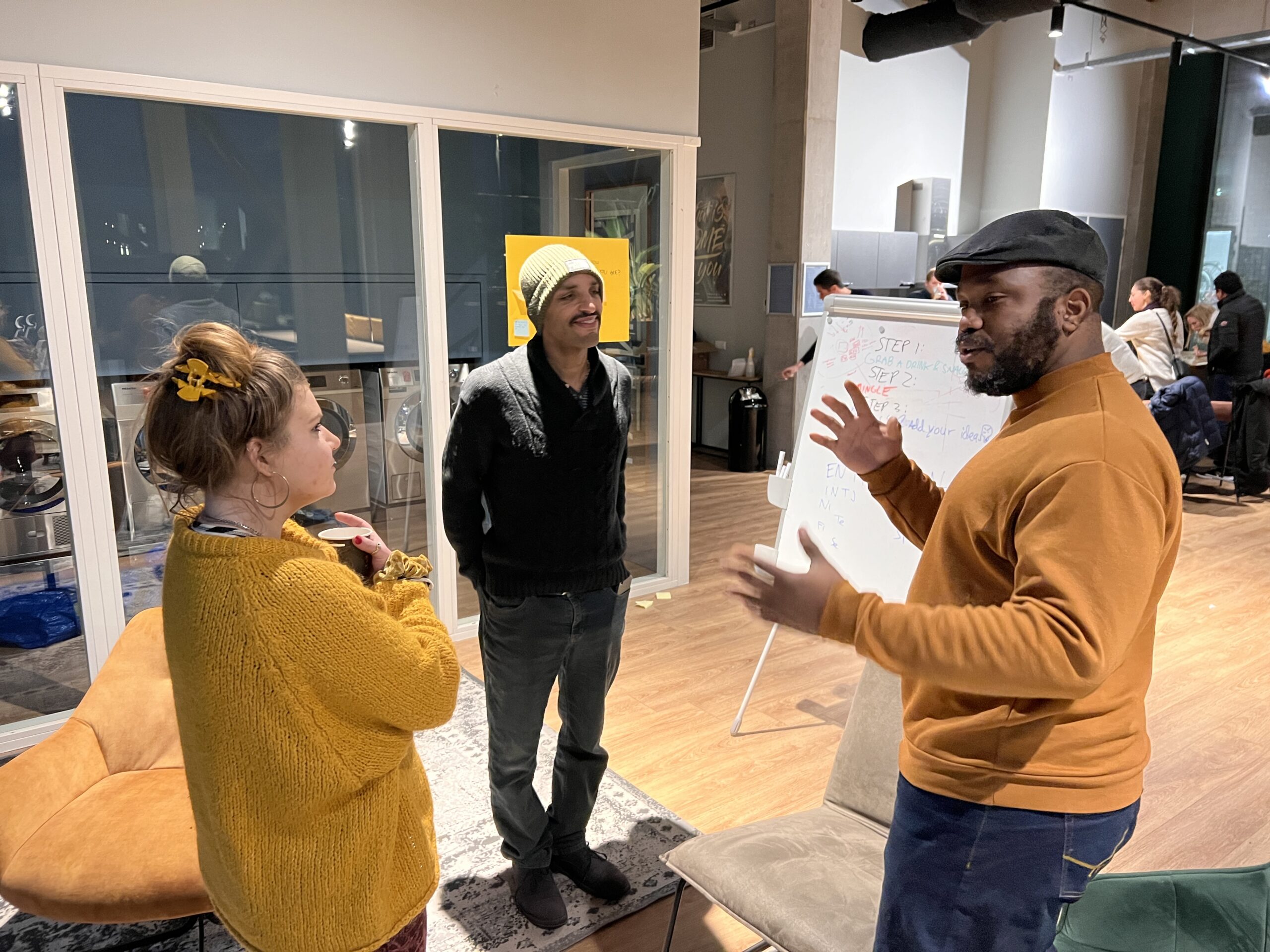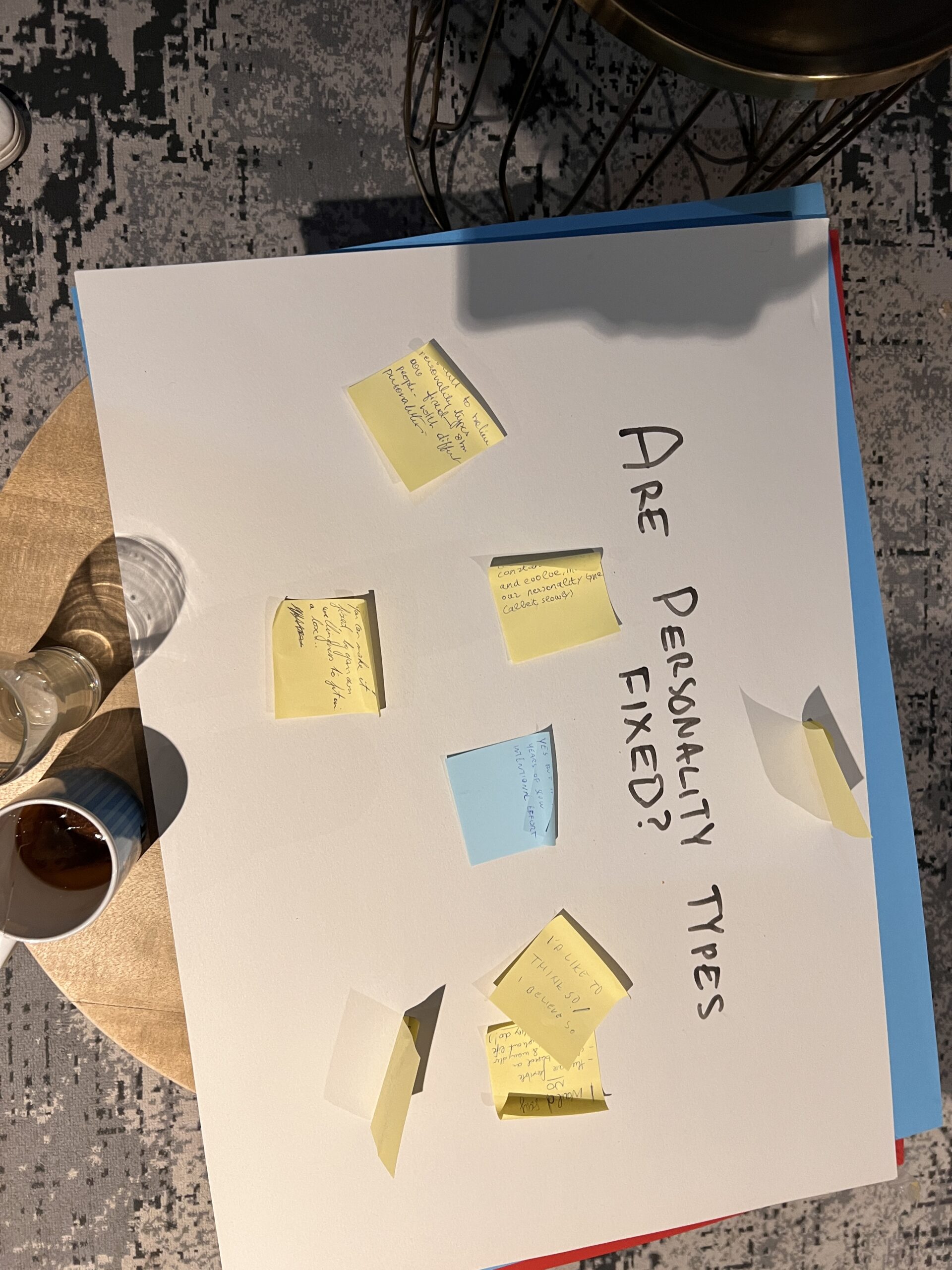

I threw a workshop in Amsterdam with other psychology enthusiasts from across the country. The goal of the workshop was to create a space where everyone could share their own opinions and ideas about personality types. While the discussions got heated sometimes, it was a great example of discussion groups done right. I organized this discussion in order to create a space where both the more outgoing and shy would be on equal footing. Let’s talk about some of the ideas that came up during the discussion.
First, the questions we discussed were:
* Why study personality psychology?
* Do personality types exist?
* How do you measure and track personality?
* How do you know what personality you are?
* Are personality types fixed?
Why study personality types?
There can be multiple reasons. The most reason was to better understand yourself and other people. The idea is that while not perfect, they present accessible categories that can be easily applied to understand people in a quick and straightforward manner. There were however concerns that personality types may promote harmful stereotypes and limiting beliefs about ourselves and other people. Not everyone liked the idea of using personality psychology to adjust how you treat or communicate with different people.
Do personality types really exist?
This discussion sparked the most opinions.
- Many, including myself, only saw personality types as a tool and saw no inherent scientific value or truth to personality types
- Some believed there was a greater truth to personality types, and that they were an operating system, determined by our genetics, something you either had or did not have. One would explain that if you know types, you can see them in everyone. Everyone sees the world through the lens of their type and cannot see the world in any other way.
- Some had more spiritual thoughts and said that personality types exist if you choose to believe that they do. Others would add that they’ve tried to “act” like other types, but that this would only be unhealthy, and that your own type is the most healthy or natural for you.
- — This is similar to my old idea of how your personality is who you are in flow.
How do you measure and track personality?
This actually turned into our most heated discussion. It spiraled into a discussion on what science is and how we know anything at all. Opinions differed strongly on whether:
* There was a value to psychology regardless if it could be proven or not because it meant something to people. Or:
* There is only value to typology if it can be scientifically measured or proven, and if it can’t, there’s no point.
But to get more on the topic itself, multiple things came up. We can do statistics and correlate personality psychology to many “real” and “hard” facts, like income, educational background, career, or educational level. We can also use neuroscience and genetic research, and some modest advances have been done in these fields.
Or, we can use personality assessments, especially the Big Five. But the MBTI does not currently meet the standards to be considered a science, and can not yet be proven or measured effectively through any assessment. It also does not really coincide with any “hard” facts, like those discussed above. Some attempts have been done by Dario Nardi, but these are pilot studies, and exploratory studies, and have not been able to draw any scientific conclusion.
How were the discussions done?
I spent more than 6 months thinking about how to create a more interactive format for discussions and workshops that would be fun and simple for everyone. The goal was to give everyone the opportunity to share without putting pressure on anyone to speak if they didn’t want to. The outcome was “Opinion squares.”
I first learned about opinion squares in my time studying democracy issues and voluntarism. The general idea was to create squares where people could walk around, choosing which topics they wanted to engage with. The second idea was to bring pens and paper so that people could write and add ideas and suggestions. This allowed people to tune in and think by themselves as well as talk with and interact with each other, on a voluntary basis.
After everyone had written down their ideas, we sat down in a smaller group and walked through all the insights and ideas that had come up together.
Initially, I’d thought to throw a vote, but as we had some last-minute cancellations, it felt more natural to just have a group discussion. With a larger group though, it might have been necessary to rely on polls to get to know how everyone felt. On the whole, I had a ton of fun, and it was really nice to do this with everyone.
Are personality types fixed?
The answer? Yes and no. Everyone recognized the influence of genetics. I stated that genetics is your starting point, where you begin, and you get to choose how you deal with and adjust to that. If you want to, approach it the right way, and work hard enough, with time, and through changes in your lifestyle. You can change and adjust your personality – it’s not easy, but it’s definitely possible. Others were more skeptical, and would say that you can change “within” the type, but not outside of it. You can change how you see your type and how you adjust around it.
How do you know what personality type you are?
This ties into the previous topic and was only studied loosely, but here, are some of the things that came up:
* Through introspection and honest conversations with yourself, by yourself
* By observing yourself in an ideal situation, in flow, or by studying who you are by yourself.
* Many saw personality type as a spectrum and talked about how there could be an infinite number of personality types, and that we can choose how to group and organize the full spectrum of human personality.
Guess what? I’m officially launching my first online course – how to know your personality and self-actualize. It contains 90 minutes of practical tips that you can use at home and in your own life to better know and get to know who you are. I share insights from the most popular personality inventories and show you a simple and straightforward approach to navigating the complex world that represents personality psychology.

